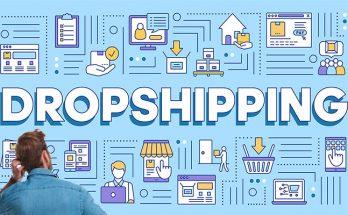Research practices entail the setting up of studies, the extraction and interrogation of data, interpreting the results, and conveying the information in various formats that facilitate the understanding of the data.
Why research expertise?
Research expertise is the advanced skillset required for the process of collecting and analyzing information or data and interpreting the results.
The value that research expertise can add to your organization should never be underestimated.
The reasons why organizations conduct research include:
- Improving current business and marketing strategies or the implementation of new ones.
- Forecasting demand and predicting product requirements.
- Acquisition of new product lines based on brand, functionality, customer preferences or trends.
- Design and creation of new products.
Data insights
Whether it is in e-commerce or retail, financial services or technology, the analysis of current and historical data enables organizations to identify gaps in the market and predict future trends. With this information at hand, companies can develop innovative solutions to meet underserved needs.
Data analysis is also helpful in mitigating risk. As risk is a reality in most environments today, be it in the form of fraudulent transactions or data theft, risk management should form part of standard company procedures.
Retail and e-commerce
E-commerce platforms analyze historical sales and customer behavior to identify preferences in terms of brand loyalty, buying habits and product trends.
The information derived from this analysis helps companies to provide personalized shopping experiences for their customers. E-commerce platforms post shopping reminders based on the individual customer’s buying habits and put forward suggestions to entice further spending. This innovative method of interaction with customers fosters good customer relationships and generates return business.
Retailers use predictive analytics to determine market trends and product needs. This aids the procurement process and lightens the workload on inventory managers.
The streamlining of the procurement process has an effect on warehouse requirements, reducing operational costs and wastage. It also improves delivery times and customer satisfaction levels.
Fintech companies embrace data analytics for smarter investment opportunities
When banks and investment companies analyze historical and current client information, their risks are substantially reduced, and they can offer their clients innovative solutions based on the research.
In the case of applications for credit facilities where previous credit records are not available, fintech companies can use historical spending data to ascertain the creditworthiness of prospective clients. Based on the research, institutions can weigh up the applicant’s credit profile and spending needs when creating a personalized financial package that is specifically designed for the individual applicant.
With the help of data analysis and artificial intelligence, financial companies can identify patterns in data that indicate possible fraudulent transactions. This helps to prevent long-term fraud and reduces the need for extensive insurance policies.
The identification of irregular patterns in data also informs companies of irregularities or loopholes in their systems and aids them in applying system checks within their software applications.
Software as a Service (SaaS)
Research aids SaaS companies in determining their target markets by interrogating social media and search engines. Once identified, they advertise on social media or search engines to reach their target audiences and convert firm orders with the use of email campaigns and website forms.
CRM software packages are used to capture prospect and customer information into a database that can be used in future marketing campaigns.
The data captured by CRM systems is used by predictive models to determine future sales and trends and to identify the need for niche products.
Market disruption
Market disruption is the introduction of a change in industry or business that has a significant impact on the current status quo.
It refers to products or ideas that are usually superior and, when introduced, change the dynamics in the industry, making a return to the prior status highly unlikely. It forces a change in the existing practices of the industry.
For a company to create a product or service that is going to disrupt the markets, extensive research and analysis is key. The research involves analysis of historical and current trends, costs, long-term sustainability of the new product, and the ongoing availability of materials. It requires an investigation into the feasibility of introducing the new product.
An example of a successful industry disruption is that of Portara, a real estate investment fund, co-founded by James Vosotas. In addition to founding a fund geared for international real estate investors, Vosotas has been instrumental in the rehabilitation of various hotels and luxury apartments that offer a mix of charm and comfort.
Market research tools
Finding a tool that helps you to stay abreast of your competitors is perhaps a good way to start. Platforms such as Crayon provide data-driven competitive intelligence for sales and marketing teams.
Expert research fosters successful outcomes
With the advances taking place in today’s digital landscape, it would be remiss of organizations to ignore the opportunities presented by relatively easy access to data, and the insights gained for the purpose of setting up successful business strategies.
In this respect, having a reliable research expert, or two, on your team is a worthwhile investment.





